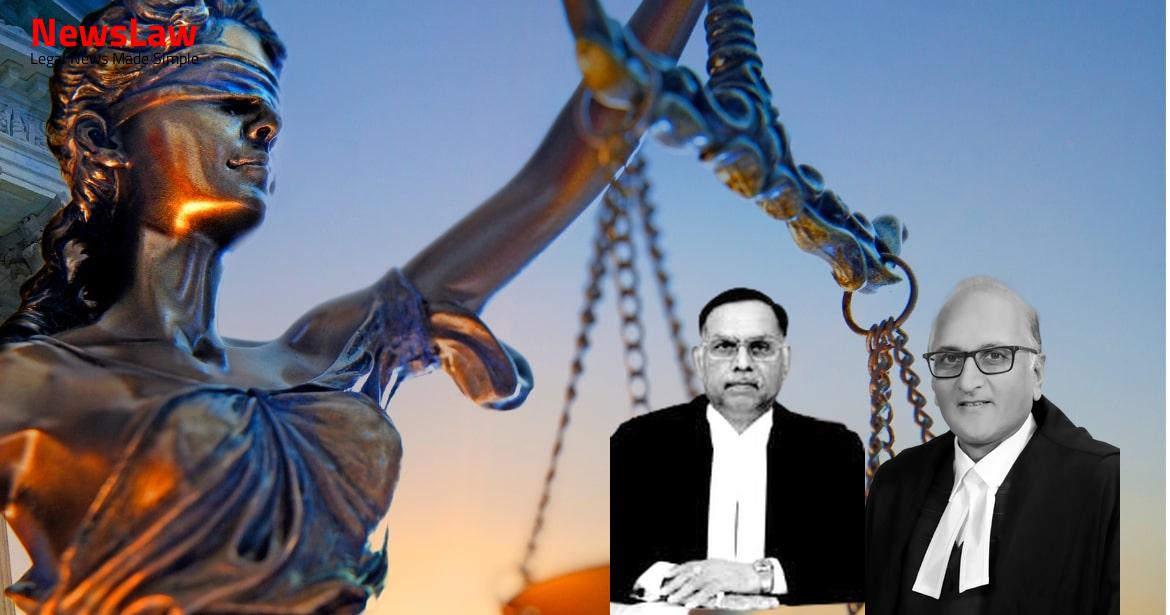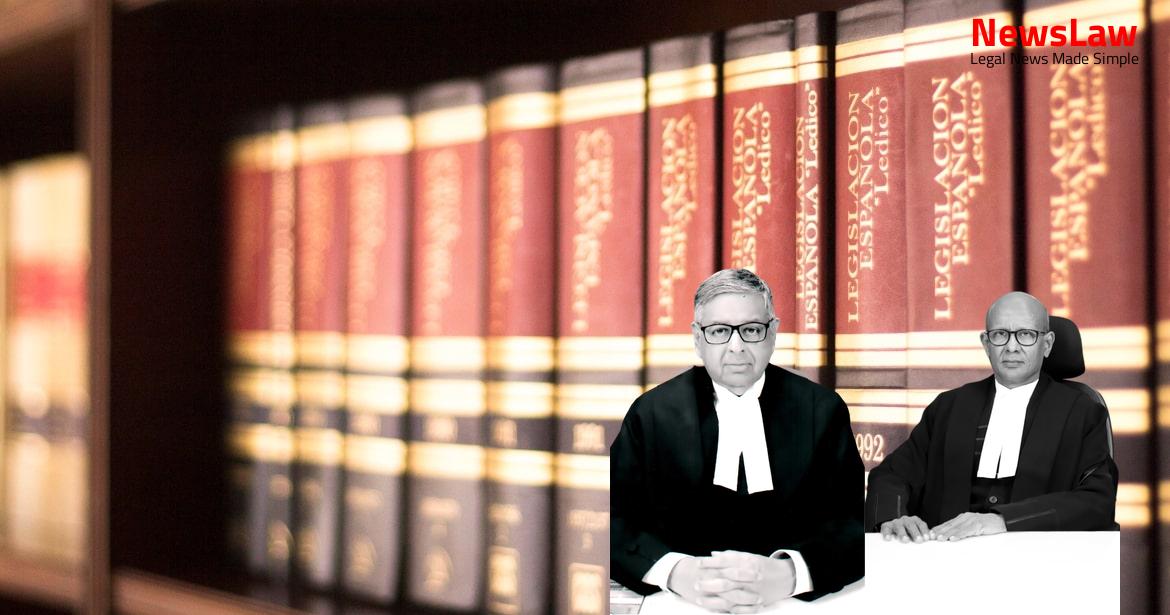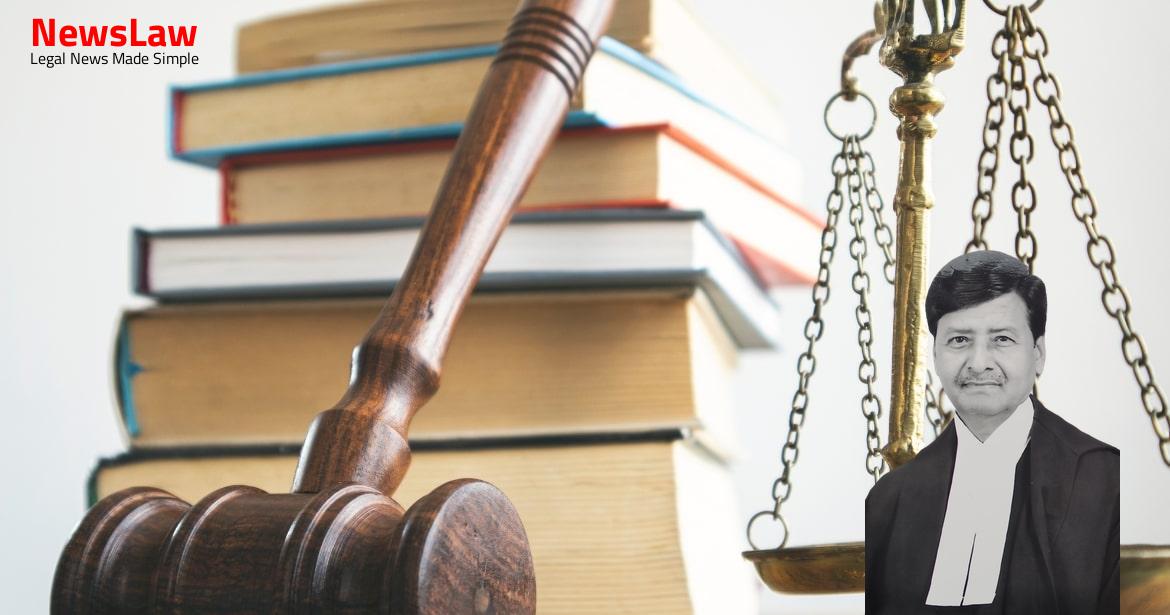In a recent legal case, the court provided crucial analysis on the definition of ‘teacher’ within the statutes of the University and the eligibility for retirement benefits. The court’s decision shed light on the distinction between positions within educational institutions and their alignment with statutory regulations. This blog dives into the key legal considerations regarding retirement rights and teacher status in educational settings.
Facts
- Writ Petition (C) No.12179 of 2016 filed by the appellant seeking to continue in service till the age of 60 was dismissed by the Kerala High Court.
- Appellant claimed to be a Teacher of the University of Kerala and entitled to work until 60 years of age.
- Appellant was promoted as Assistant Director in the CACEE on 07.12.2012.
- University Grants Commission revised the pay scale of CACEE staff to align with academic positions like Associate Professor, Assistant Professor, Reader, Lecturer.
- Appellant was appointed as Project Officer in CACEE with sanction from the University of Kerala in 1990.
- Appellant received certificates from the Centre for teaching various courses and engaging in research and extension activities.
- Appellant joined CACEE on 26.12.1989 and received the UGC pay scale implemented by the University of Kerala.
- Division Bench observed that the judgments in question were delivered in peculiar circumstances and there was no justification for reference.
- The Division Bench held that the appellant is not a Teacher of the University and is not entitled to continue till the age of 60 years.
- The writ petition was dismissed based on the conclusion of the High Court that the petitioner was holding the post of Teacher while working as Director in the Centre for Adult Education and Extension.
- A learned Single Judge referred the matter to a Division Bench due to a conflict between two judgments in the case.
- The University contested the case of the appellant.
Also Read: Interpretation of Lease Agreement and Compulsory Registration
Arguments
- CACEE is not a Statutory University Department of study and research as defined in the statutes of the University.
- CACEE is not affiliated to the University and is one of the many Schemes sponsored by outside funding Agencies like UGC.
- CACEE was started on a temporary basis by the Government of India to eradicate illiteracy in society and was operative till 31.03.1997.
- The appellant’s claim of being a Teacher based on imparting instruction at CACEE was contested by the University’s counsel.
- Various Kerala High Court judgments were cited by the appellant’s counsel to support the claim that CACEE staff, including the appellant, are ‘Teachers’ entitled to benefits and retirement age of 60 years.
- The Kerala High Court judgments were specific to each case and may not be directly applicable to the appellant’s situation.
Also Read: Enhancing Compensation and Modifying Sentences: A Legal Analysis
Analysis
- The age of retirement for teachers of the University is set at 60 years.
- A teacher of the University is defined as a person employed as a teacher in any institution maintained by the University.
- A ‘college’ is an institution maintained by, or affiliated to, the University where instruction is provided in accordance with the University’s provisions.
- A ‘recognised institution’ is an institution for research or special studies, other than an affiliated college, recognized as such by the University.
- The Centre is not considered a College as it is neither maintained nor affiliated to the University.
- The Centre’s posts are not part of the University’s posts instituted by the Syndicate.
- The definition of a ‘teacher’ includes various roles like principal, professor, associate professor, etc., who impart instruction or supervise research in colleges or recognised institutions with University’s approval.
- The appellant, Dr. Pillai, was initially appointed as a Physical Director in an Agricultural College which later became part of the Andhra Pradesh University.
- The Centre for Adult Continuing Education and Extension (CACEE) was established as a temporary scheme by the Government of India to address illiteracy in society.
- The appellant was later appointed as the Director of CACEE, but it was not a department or institution under the Kerala University Act, statutes, or regulations.
- Post-1997, the University decided to restructure CACEE as a self-supporting center due to lack of sponsorship for the scheme.
- The appellant’s appointments were against posts created temporarily under a government program aimed at eradicating illiteracy.
- The High Court judgment did not provide adequate details of the nature and organization of CACEE.
- The appellant’s role as a teacher or within the University’s defined teaching positions under the Kerala University Act was contested, leading to the dismissal of the writ petition.
- The appellant’s reliance on certificates indicating instructional roles in various courses at the Centre was not sufficient to establish his position as a teacher under the University’s statutes.
- Appellant/petitioner was a Reader in the University of Kerala.
- The Division Bench made observations regarding the appellant’s position in paragraph 2 of the judgment.
- No merit found in the appeal
- The appeal is dismissed
Also Read: Transfer of Writ Petitions for Chartered Accountants’ Tax Audit Guidelines
Case Title: P. GOPINATHAN PILLAI Vs. UNIVERSITY OF KERALA . (2020 INSC 333)
Case Number: C.A. No.-001641-001641 / 2020



